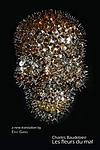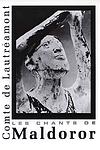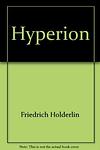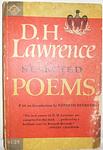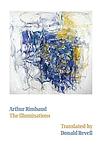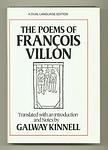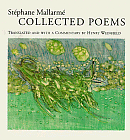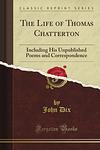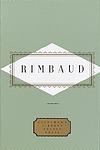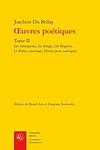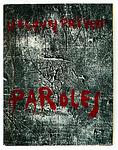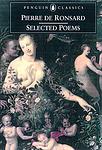The Greatest French, German "Poetry" Books of All Time
Click to learn how this list is calculated.
This list represents a comprehensive and trusted collection of the greatest books. Developed through a specialized algorithm, it brings together 301 'best of' book lists to form a definitive guide to the world's most acclaimed books. For those interested in how these books are chosen, additional details can be found on the rankings page.
Genres
Poetry is a genre of literature that uses language to evoke emotion, paint vivid imagery, and convey complex ideas through the use of rhythm, meter, and sound. It is characterized by its use of figurative language, such as metaphors and similes, and its ability to capture the essence of a moment or experience in a concise and powerful way. Poetry can take many forms, including sonnets, haikus, free verse, and spoken word, and can cover a wide range of topics, from love and nature to politics and social issues. As a category for books, poetry offers readers a unique and intimate glimpse into the human experience, inviting them to explore the beauty and complexity of language and the world around them.
Countries
Date Range
Reading Statistics
Click the button below to see how many of these books you've read!
Download
If you're interested in downloading this list as a CSV file for use in a spreadsheet application, you can easily do so by clicking the button below. Please note that to ensure a manageable file size and faster download, the CSV will include details for only the first 500 books.
Download-
1. Faust by Johann Wolfgang von Goethe
The book is a tragic play in two parts that tells the story of a scholarly man named Faust, who becomes dissatisfied with his life and makes a pact with the devil, Mephistopheles. In exchange for unlimited knowledge and worldly pleasures, Faust agrees to give his soul to Mephistopheles after death. The narrative explores themes of ambition, despair, love, and redemption, ultimately leading to Faust's salvation.
The 84th Greatest Book of All Time -
2. The Flowers of Evil by Charles Baudelaire
"The Flowers of Evil" is a collection of poems that explore themes of decadence and eroticism, and the changing nature of beauty in the rapidly industrializing Paris during the 19th century. The work is renowned for its exploration of the paradoxes of pleasure and pain, the exotic and the commonplace, and the boundaries of morality and aesthetics. The poems challenge traditional notions of good and evil, suggesting that beauty can be found in unexpected and even disturbing places.
The 287th Greatest Book of All Time -
3. A Season in Hell by Arthur Rimbaud
"A Season in Hell" is a deeply introspective work, exploring the author's tumultuous life and struggles through a series of prose poems. The author grapples with his own moral crisis, spiritual torment and the anguish of unrequited love, while also critiquing society and the human condition. This journey through despair and redemption, filled with vivid and surreal imagery, is considered one of the pioneering works of Symbolist literature.
The 293rd Greatest Book of All Time -
4. Maldoror (Les Chants de Maldoror) by Comte de Lautréamont
"Maldoror (Les Chants de Maldoror)" is a poetic novel that explores the dark and surreal world of the protagonist, Maldoror, a figure of absolute evil who rejects God and conventional morality, often expressing a violent hatred towards humanity. The book is composed of six cantos filled with bizarre and often shocking imagery, which depict Maldoror's experiences in a world that he perceives as chaotic and indifferent. The novel is known for its vivid and often disturbing exploration of the human condition and its subversion of traditional literary norms.
The 868th Greatest Book of All Time -
5. Hyperion by Friedrich Holderlin
The novel explores the life and thoughts of a young German named Hyperion who spends much of his time in Greece. He is torn between his love for his homeland and his disgust with contemporary German society. Through a series of letters to his German friend Bellarmin, Hyperion narrates his participation in the Greek struggle for independence from the Ottoman Empire, his disillusionment with war, and his intense love for the Greek woman Diotima. The novel is a meditation on beauty and suffering, wisdom and madness, and the dichotomy between the ideal and the real.
The 1130th Greatest Book of All Time -
6. Alcools by Guillaume Apollinaire
"Alcools" is a collection of poems that explores various themes such as love, loss, and the passage of time. The work is notable for its innovative use of form and syntax, often eschewing traditional punctuation and capitalization. The poems are rich in imagery and symbolism, drawing on a wide range of influences from mythology to modern urban life. The collection is considered a landmark of modernist literature, reflecting the author's unique vision and distinctive poetic voice.
The 1239th Greatest Book of All Time -
7. Poems by Paul Celan
This book is a collection of deeply moving and thought-provoking poems that delve into themes of love, loss, history, identity, and the human condition. The poems are marked by their haunting imagery, complex symbolism, and profound exploration of the Holocaust and its aftermath. The author's unique style and powerful language make this collection a compelling read, offering readers a glimpse into the emotional depth and intellectual complexity of his experiences and reflections.
The 1317th Greatest Book of All Time -
8. The Duino Elegies by Rainer Maria Rilke
"The Duino Elegies" is a collection of ten elegies that delve into the complexities of human existence, exploring themes of love, death, time, God, and the nature of reality. The author uses vivid and often unsettling imagery to convey a sense of the profound beauty and pain inherent in the human experience. The elegies are named after the castle of Duino, where the author began writing them, and they are renowned for their introspective depth and philosophical insight.
The 1457th Greatest Book of All Time -
9. Illuminations by Arthur Rimbaud
"Illuminations" is a collection of prose poems that delve into the author's vivid dreamlike visions and his exploration of his inner psyche. These poems are filled with symbolic imagery and metaphors that challenge traditional poetic norms. The author uses his work to express his disillusionment with the conventional world, his longing for spiritual enlightenment, and his quest for personal freedom. The collection is a testament to the author's innovative style and his significant influence on modernist literature.
The 1470th Greatest Book of All Time -
10. The Poems of Francois Villon by François Villon
This book is a collection of poems by a renowned 15th-century French poet, known for his raw and emotive language. His works vividly depict the harsh realities of life in medieval France, often incorporating themes of love, death, and fate. The poet's life of crime and vagabondage is often reflected in his poetry, making his work a unique blend of high art and gritty realism. The collection is considered a cornerstone of French literature and remains influential in the realm of poetry.
The 1631st Greatest Book of All Time -
11. Paris Spleen by Charles Baudelaire
The book is a seminal work in the history of prose poetry, capturing the modern urban experience through a series of short, lyrical pieces. It delves into the psychological landscape of the city, exploring themes of melancholy, ennui, and the search for beauty amidst the squalor of Parisian life in the mid-19th century. The author's sharp observations and vivid imagery reflect his complex relationship with the city, oscillating between a deep love for its vibrant culture and a profound sense of alienation. This collection of prose poems is considered a touchstone for modernist literature, influencing generations of writers and poets with its innovative style and introspective depth.
The 1789th Greatest Book of All Time -
12. Le Cid by Pierre Corneille
"Le Cid" is a dramatic play that follows the story of a young nobleman who is torn between love and honor. The protagonist is faced with a dilemma when he is ordered to kill his beloved's father in a duel to defend his own father's honor. Despite his love for his girlfriend, he chooses honor over love and kills her father, leading to a series of tragic events. The play explores themes of duty, honor, and the moral complexities of revenge.
The 1790th Greatest Book of All Time -
13. Collected Poems by Stéphane Mallarmé
"Collected Poems" is a compilation of poetic works by a renowned French poet. The book offers readers a deep exploration into the intricate world of symbolism and the power of language. The author's artistic use of words to create vivid imagery and evoke profound emotions is evident throughout the collection. His poems delve into themes of reality, dreams, and the interplay between the two, offering a unique perspective on the human experience.
The 1836th Greatest Book of All Time -
14. Wry-Blue Loves: Les Amours Jaunes by Tristan Corbière
"Wry-Blue Loves: Les Amours Jaunes" is a collection of poems that explore themes of love, death, and the sea. Written in a unique style that blends irony, sarcasm, and a sense of melancholy, the author uses vivid and sometimes shocking imagery to challenge conventional romantic ideals and express his own disillusionment with love and life. The sea serves as a recurring motif, symbolizing both the author's Breton heritage and the unpredictable, often cruel nature of existence.
The 1902nd Greatest Book of All Time -
15. Les Contemplations by Victor Hugo
"Les Contemplations" is a collection of poetry that explores themes of love, nature, and spirituality. The work is divided into two parts, with the first half focusing on the author's personal experiences, including his childhood, his family, and the loss of his daughter. The second half, in contrast, delves into more philosophical and existential themes, reflecting on the nature of life, death, and the human condition. The poems are renowned for their lyrical beauty, emotional depth, and profound exploration of human experiences.
The 1905th Greatest Book of All Time -
16. Fables of La Fontaine by Jean de La Fontaine
"Fables of La Fontaine" is a collection of moralistic tales, often involving animals and inanimate objects with human characteristics. These stories, written in verse, offer valuable life lessons and social commentaries. They are acclaimed for their wit, wisdom, and the skill with which they are told, making them enduring classics in the world of literature.
The 2169th Greatest Book of All Time -
17. Les Tragiques by Agrippa d'Aubigné
"Les Tragiques" is a seven-part epic poem that presents a fierce and violent critique of the French Wars of Religion from a Protestant perspective. The narrative follows the author's experiences and observations of the brutal conflicts, offering a vivid depiction of the atrocities committed by both sides. The poem is both a reflection of personal despair and a call for divine vengeance against the author's perceived enemies. The work is known for its dramatic imagery and emotional intensity, offering a unique insight into one of the most turbulent periods in French history.
The 2190th Greatest Book of All Time -
18. Germany, a Winter Tale by Heinrich Heine
"Germany, a Winter Tale" is a satirical epic poem that criticizes the political and social state of Germany in the 19th century. The narrative follows the author's journey through his homeland, where he encounters various figures and situations that embody the cultural and political issues of the time. The author uses humor and irony to expose the hypocrisy, corruption, and stagnation in German society, while also expressing his longing for a more progressive and enlightened future.
The 2395th Greatest Book of All Time -
19. Arcanum 17 by André Breton
"Arcanum 17" is a surrealist exploration of love, loss, and resurrection set amidst the backdrop of World War II. Drawing inspiration from the legend of Melusina, the author uses the symbolism of this mythic figure to discuss the role of women in society and the destructive nature of war. The narrative also delves into themes of renewal, rebirth, and the power of the feminine, all while using the surrealist style to blend reality and dream in a poetic and philosophical discourse.
The 2437th Greatest Book of All Time -
20. Chatterton by Alfred de Vigny
The book is a historical novel that delves into the life and tragic fate of Thomas Chatterton, an 18th-century English poet who was posthumously recognized for his talent. The narrative explores themes of artistic integrity, the struggle for recognition, and the impact of societal neglect on creative genius. Through the lens of Chatterton's short and tumultuous life, the novel examines the romantic ideal of the misunderstood and impoverished artist, ultimately providing a critique of the ways in which society both venerates and marginalizes its creators. The protagonist's passionate pursuit of literary authenticity and his eventual despair are depicted with a blend of empathy and melancholy, reflecting on the eternal conflict between the artist's inner world and the external realities of survival and acceptance.
The 2763rd Greatest Book of All Time -
21. Collected Poems by Arthur Rimbaud
"Collected Poems" is a compilation of works by a renowned French poet, known for his influence on modern literature and arts, which prefigured surrealism. His poetry is characterized by its innovative use of symbolism and imagery that explores themes such as adolescence, rebellion, and the loss of innocence. The collection includes both his early works, filled with the youthful vitality and rebellious spirit, and his later, more introspective pieces.
The 3005th Greatest Book of All Time -
22. Les Regrets by Joachim Du Bellay
"Les Regrets" is a collection of sonnets that reflect the author's longing for his homeland while he resides in Rome. The poems express a sense of melancholy and dislocation, as the poet grapples with the grandeur and decay of the ancient city, contrasting it with the simplicity and familiarity of his native France. Through vivid imagery and emotional depth, the work explores themes of nostalgia, the passage of time, and the search for identity amidst the ruins of a once-great civilization, ultimately revealing the universal human desire for belonging and the bittersweet nature of memory.
The 3023rd Greatest Book of All Time -
23. Paroles by Jacques Prévert
"Paroles" is a collection of poetry that delves into the human condition with simplicity, humor, and poignancy. The poems capture the essence of everyday life, love, and the ironies of society, often through the lens of the common people and the Parisian streets. The language is accessible yet evocative, painting vivid images and emotions that resonate with a wide audience. The work is celebrated for its ability to convey profound insights through seemingly ordinary moments, reflecting the poet's unique voice and his ability to find beauty in the mundane.
The 3031st Greatest Book of All Time -
24. One Hundred and One Poems by Paul Verlaine by Paul Verlaine
This is a collection of 101 poems by a renowned French poet, showcasing his unique style and themes. The poems touch on a variety of subjects, including love, nature, and the human condition. The author's use of rhythm, rhyme, and vivid imagery creates a deeply emotional and evocative reading experience. His work is known for its musicality and its ability to evoke strong emotions, making this collection a must-read for any lover of poetry.
The 3033rd Greatest Book of All Time -
25. Selected Poems by Pierre Ronsard
"Selected Poems" is a collection of works by a renowned French poet, showcasing his mastery of the sonnet and ode forms. The poet's works are deeply influenced by classical Greek and Roman literature, as well as contemporary Italian poets. His poems are known for their exploration of love, beauty, and the fleeting nature of life, often expressed through intricate metaphors and vivid imagery. The collection also includes some of his most famous works, which have had a profound influence on French literature.
The 3039th Greatest Book of All Time
Reading Statistics
Click the button below to see how many of these books you've read!
Download
If you're interested in downloading this list as a CSV file for use in a spreadsheet application, you can easily do so by clicking the button below. Please note that to ensure a manageable file size and faster download, the CSV will include details for only the first 500 books.
Download
